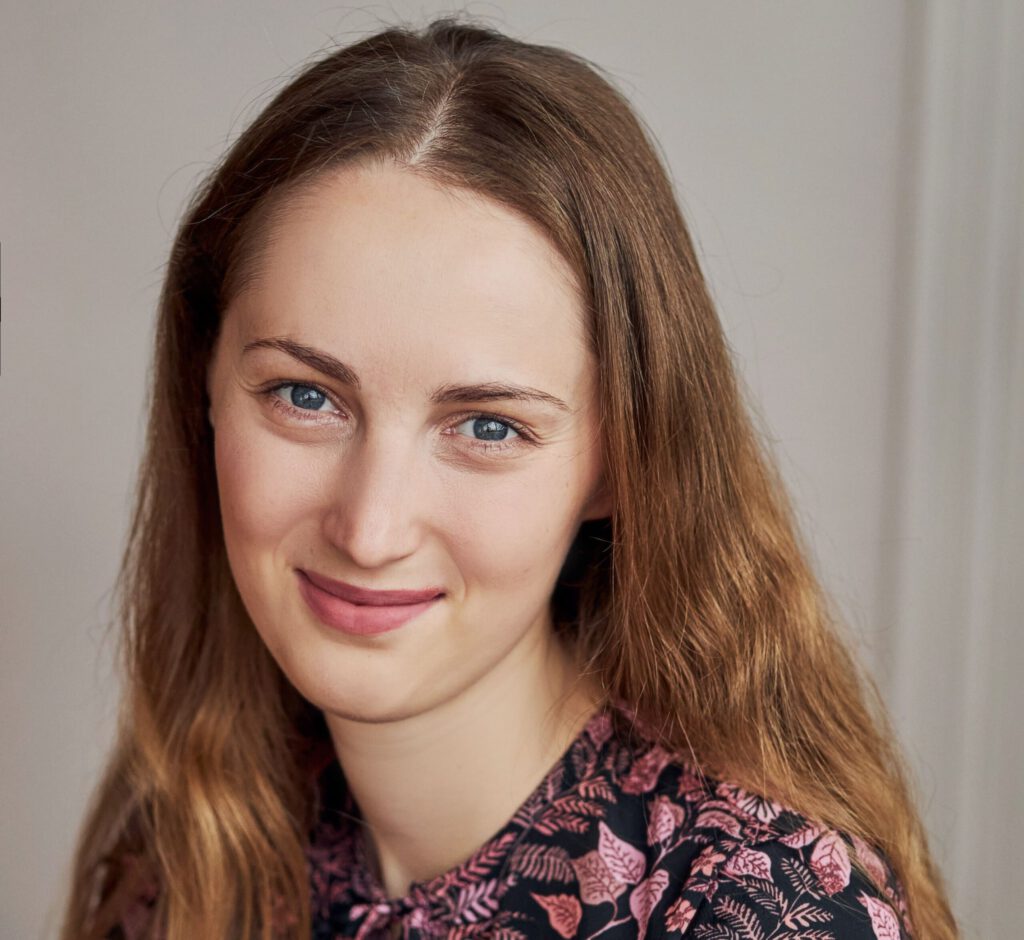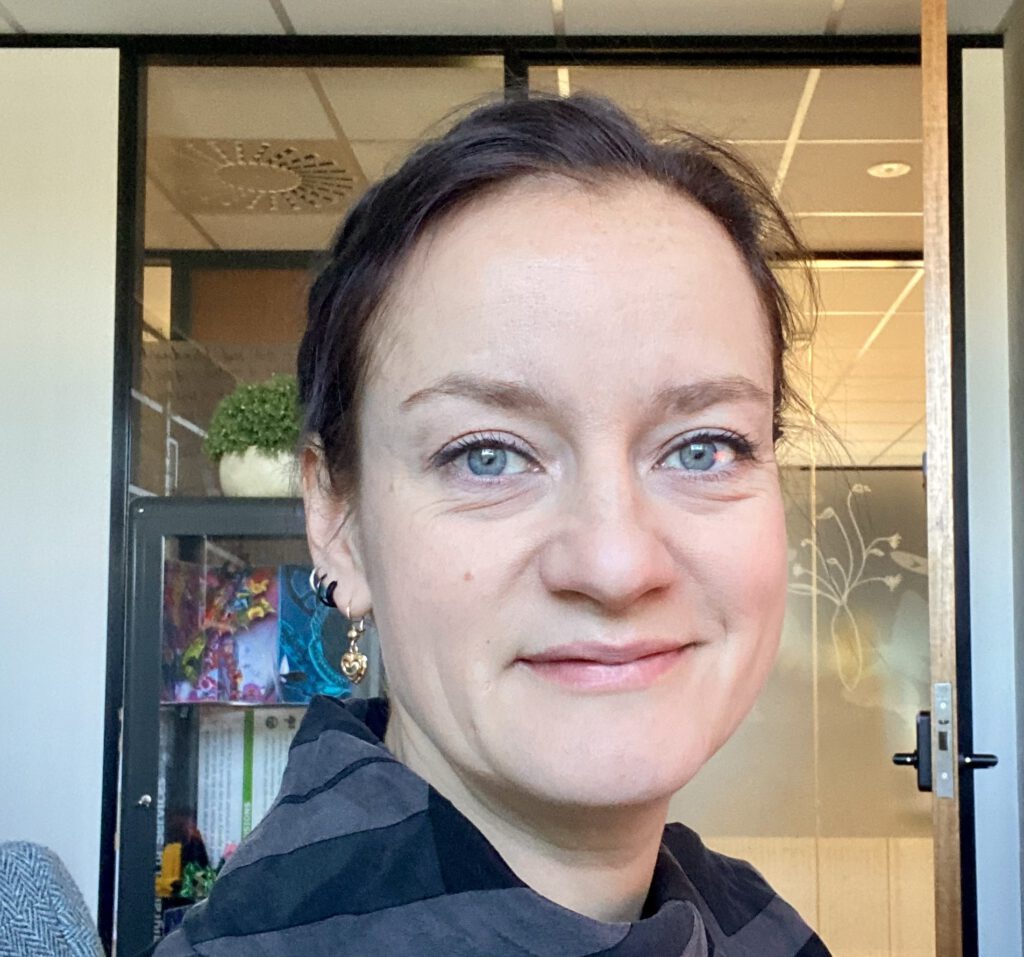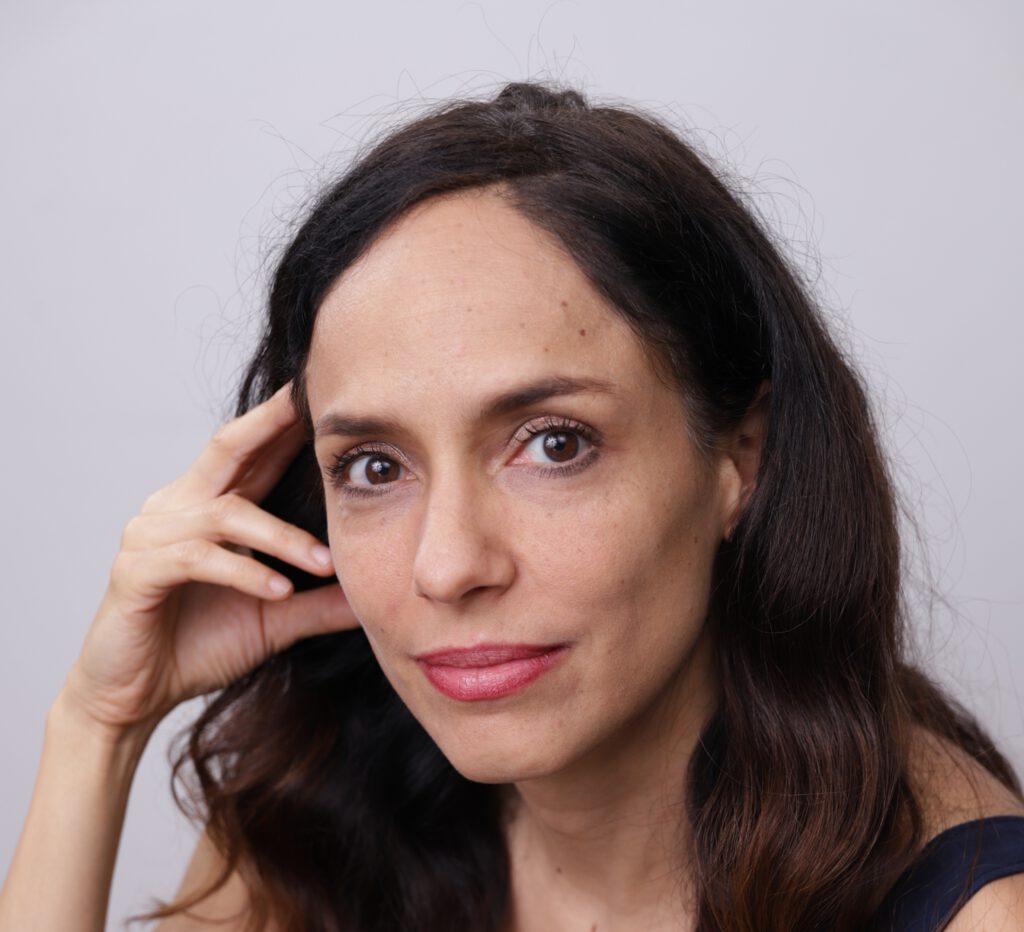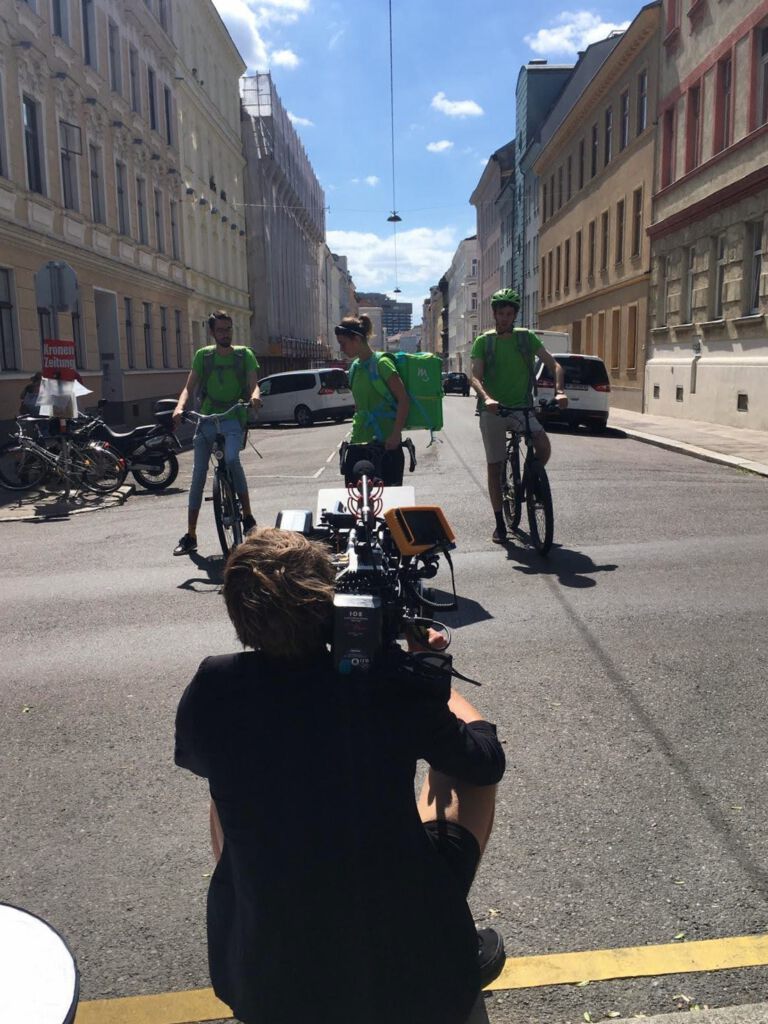On a Fulbright at the mdw
Vienna for a musician is like Disneyland for a child.
This has never been so true as for this soprano who freshly graduated from a US conservatory. My name is Theodora Nestorova, and I am studying on a Fulbright scholarship at Vienna’s mdw (University of Music and Performing Arts) in the 2018/19 academic year. I am in the MA Lied und Oratorium programme under the tutelage of Martin Vácha and Anton Scharinger.
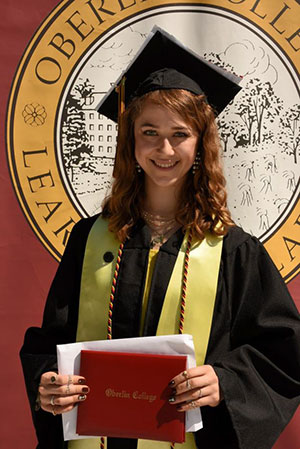
My project also involves researching vocal pedagogical methods under the guidance of Dr. Christian Herbst and Dr. Ian Howell. In 2018, I completed my bachelor’s degree in voice and musicology at Oberlin College & Conservatory of Music in Ohio, but my family lives in Boston. My life history is complicated: I am also Bulgarian but was born in Great Britain – but let’s leave that for another day☺.
My Fulbright project for the 2018/19 academic year (it is titled “Modern Austrian Vocal Pedagogical Methods in a Global Context”) has three parts: first, my studies at the mdw; second, my research; and third, practising (rehearsing, playing, and everything else to do with the practical element of singing!).
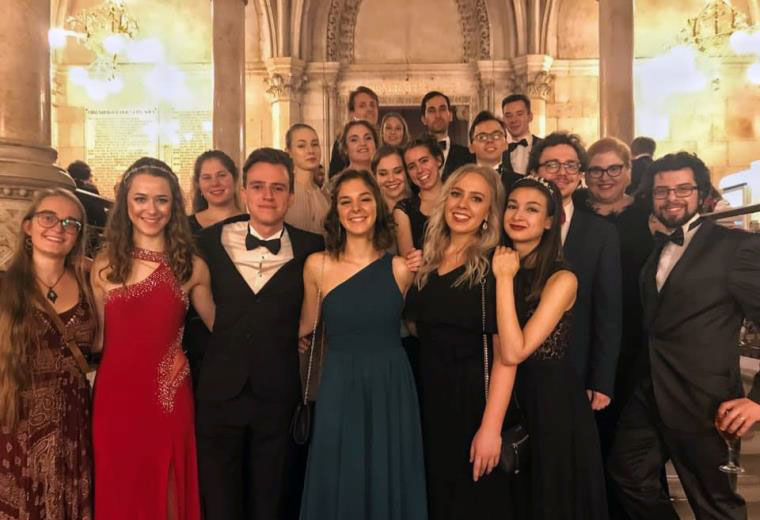
Studies
I am completing various courses in the mdw’s Department of Vocal Studies and Music Theatre and in its Antonio Salieri Department of Vocal Studies and Vocal Research in Music Education. My first observation about the curriculum was the amount of attention placed on body awareness and health. One of the classes, “Atem- und Körperschulung,” is required for all four years of bachelor’s study and is a movement training class for singers to exercise, connect with, and learn about their bodies, which are, in fact, our instruments. On Saturday, 13 October 2018, I attended the “10th Gesangspädagogisches Symposium” in the Antonio Salieri Department of Vocal Studies and Vocal Research in Music Education, with many lectures and workshops, including Feldenkrais body work and “The Art of Hearing According to François Louche.” This is a new technique for body and music that I had never heard of before!
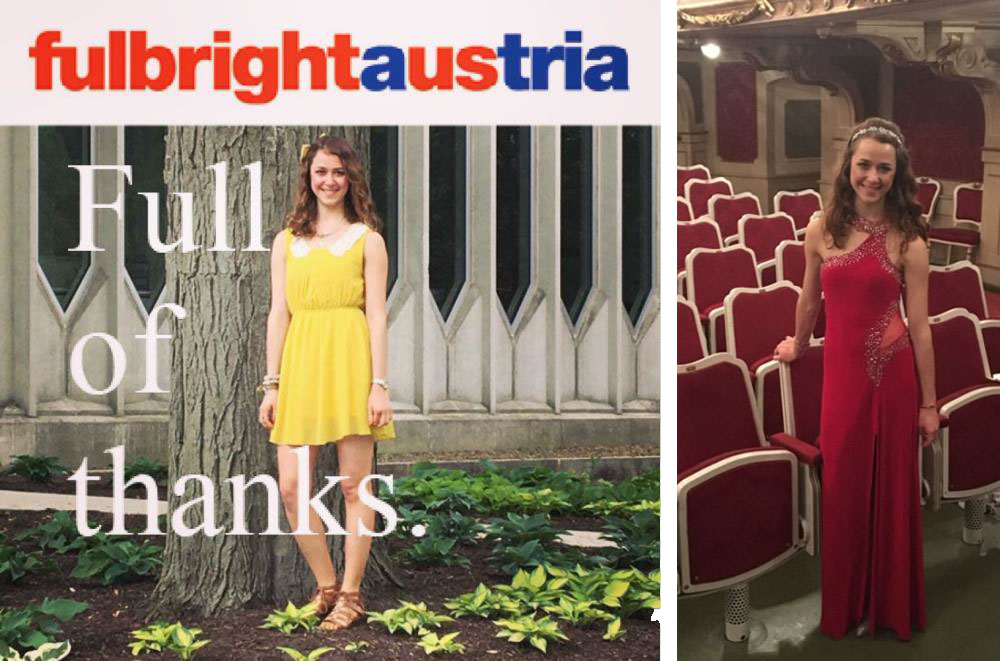
Ialso think that the curriculum is very focused on practical, work-in-the-field experience. The academic classes are also useful, but the opportunities to take practical classes are so helpful for musicians. In the first semester I also took Sebastian Schwarz’s “Auditioning” class, and it was a very useful experience. This summer semester, in addition to my regular classes (including Didactics 1 and 2 with Dr. Elke Nagl), I will take Respiro e Movimento” with Giuseppe Ravì, “Karriere-Mentoring” with Margit Klaushofer, “Feldenkrais – Bewusstheit durch Bewegung” with Adrian Cox in the Department of Music and Movement Education, and “Naturwissenschaftliche Grundlagen der Klangforschung” with Vasileios Chatziioannou in the Department of Music Acoustics – Wiener Klangstil (IWK).
Research
I am very interested in studying the various national schools of vocal pedagogy. My Fulbright project also includes research into the methods of the Viennese vocal school, under the supervision of Dr. Christian Herbst and Dr. Ian Howell. In addition, I am studying whether the convergence of the national vocal processes could contain national identifying characteristics and what role technology plays in this process.
During the semester break in February, in addition to regular practicing and rehearsals, I made progress in my part of the research project, spending many hours in Vienna libraries before finding the central operetta for my research project: “Im wiessen Rössl”. Under the guidance of my advisors, I will analyse these recording acoustically, evaluating them and controlling for certain variables.
The subsequent results will then either confirm or disprove my hypothesis and contribute to my overall research project, which studies the influence of historical and cultural differences on vocal styles (and their corresponding pedagogical methodologies) that result over time, particularly in our modern, globalised world.
Part of this project is to gather a great deal of experience and take advantage of everything Vienna has to offer musically and educationally.
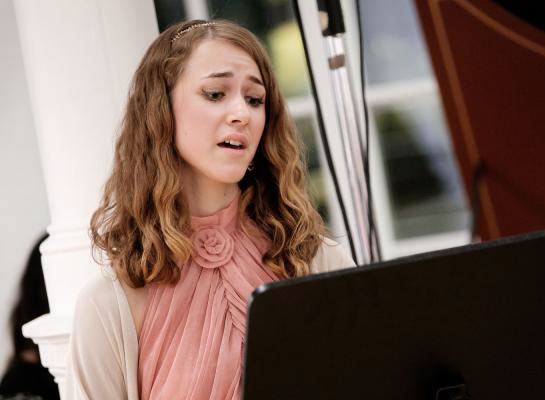
Singing
I am so grateful to have had so many valuable experiences in various areas in this year. At the end of October, I participated in “Bibliosphäre: Die Kugel der Zeit”, an mdw production as part of the Wien Modern festival. It was a very interesting event in which Maestro Marino Formenti, along with many students, turned the reading room of the mdw library into an eight-hour listening experience featuring music from several centuries. I was so happy that I was able to perform along with wonderful fellow students and meet instrumentalists at the mdw location on Anton-von-Webern-Platz (because the Department of Vocal Studies and Music Theatre is in Penzing, there is not so much “cross-pollination” there).
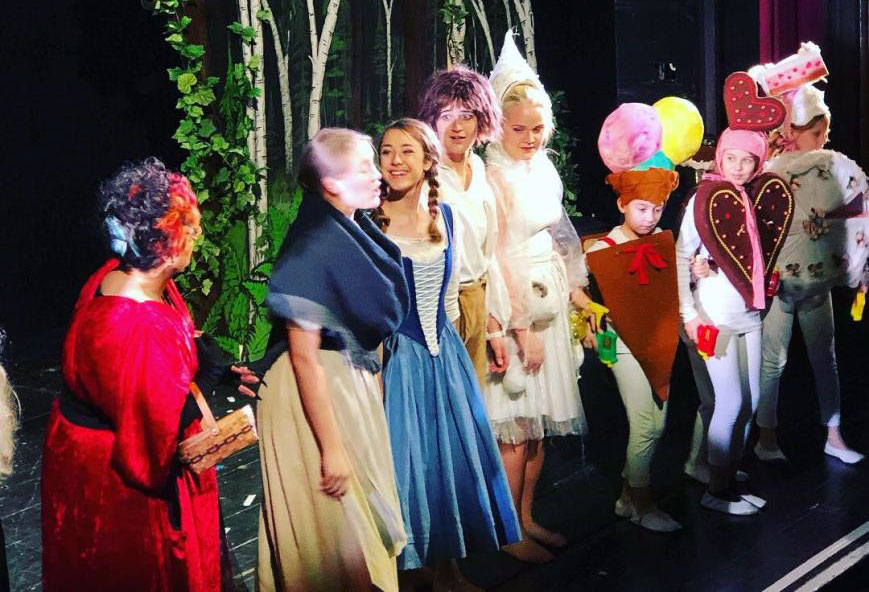
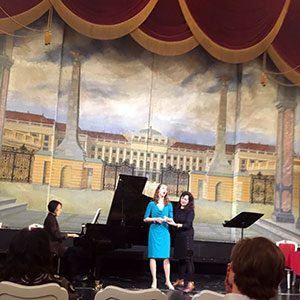
In December, I had the incredible experience of appearing nearly every morning for a week as Gretel in Humperdinck’s “Hansel and Gretel”. These performances for primary-school children at the Schlosstheater Schönbrunn, sometimes twice a day, were one of the highlights of the first semester. Afterwards, I was selected to take part in a masterclass with the Bulgarian soprano Krassimira Stoyanova, and it was an exceedingly delightful experience that was close to my Bulgarian heart! It was really a dream come true to work with a singer of this calibre, particularly one who is so technically refined and views the voice as instrument and soul.
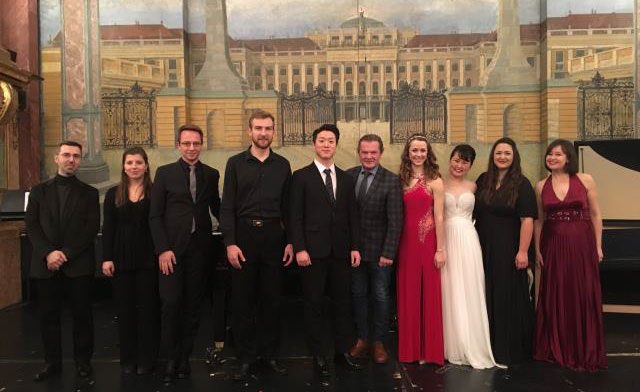
Then came the season of recitals, a very exciting and magical time! I performed at the December class recital of my lied and oratorio professor Anton Scharinger (where I sang an aria by G. F. Händel and songs by Alexander Zemlinsky) and in January at the recital given by students of my voice professor Martin Vácha (where I sang an aria by C. M. von Weber, a duet by F. Lehár, and a song by S. Sondheim).
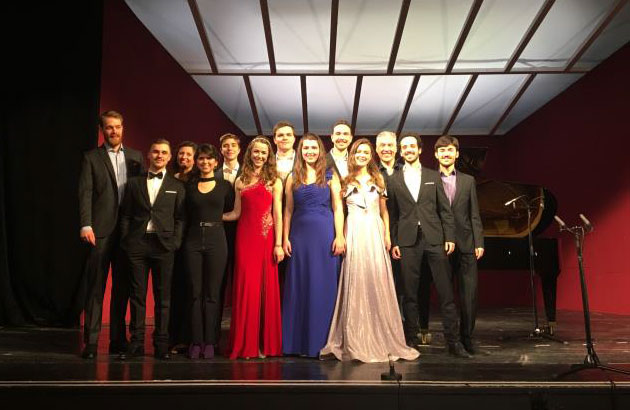
I was chosen by the Fulbright Austria Commission for the Fulbright Berlin Seminar in March, where I will sing Schubert Lieder and other arias at a concert. I’m also looking forward to participating in a project by students of stage direction, appearing in March as Noémie in J. Massenet’s “Cendrillon” and in June as Clorinda in G. Rossini’s “La Cenerentola”. It is a tremendous experience to sing the same role in two different settings of the same story in two different operas in two different languages.
For April, I am preparing a concert of selected arias and ensembles from oratorios, including Bach’s “St. Matthew Passion”, with the Webern Kammerphilharmonie under Erwin Ortner, which will take place at the Schlosstheater Schönbrunn. I will also be singing Eastern European works in a broadcast by the Bulgarian National Radio (in which a Germen song cycle by a Bulgarian composer will be given its first performance). In May, I will then sing in recitals of my two professors. I have a lovely repertoire for these recitals and am already excited about the opportunity to work with two wonderful pianists: István Mátyás and Pantelis Polychronidas. Finally, at the beginning of May, there will be a seminar in the Austrian town of Strobl, organised by the Fulbright programme, where I will perform together with my fellow Fulbright students and present my work.
Everything is culture
Vienna is truly enchanting, both for tourists (with the Christmas markets and the balls) as well as for musicians; there are so many superb musical events constantly taking place in and around Vienna. The sheer number of world-class musical organisations (Vienna State Opera, Theater an der Wien, Volksoper, Vienna Philharmonic, Musikverein, Wiener Konzerthaus, and SO much more) is overwhelming and offers an enormous amount of art at the highest level. One of the highlights of the many musical events I have experienced up until now was seeing the American mezzo-soprano Joyce DiDonato as Didon in Berlioz’s “Les Troyens” at the Vienna State Opera.
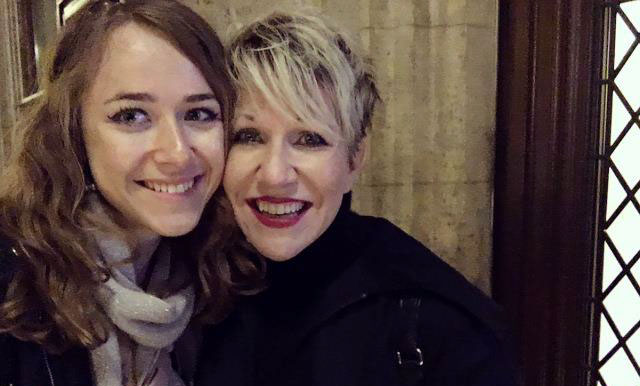
She was so lovely on and off the stage – my friend and I had the opportunity to speak with her after the performance. She shared pearls of wisdom, signed my poster, and said: “Hang it up in your future voice studio”. Not to mention that her stupendous vocal technique and expression was incredibly inspiring.
Austria: A4 = 443 Hz; USA: A4 = 440 Hz
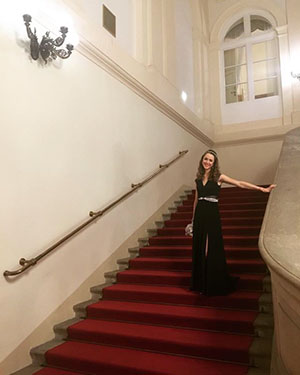
I think that there is a particularly apt symbolic fact for the first half of my Fulbright year at the mdw in Vienna: in Austria, A4 = 443 Hz and in the US 440 Hz. You would not think so, but these three hertz really make a difference!
As soon as I arrived in Austria and used the mdw practice rooms in Vienna, I was constantly amazed that everything felt higher, stronger, and more energised, until one day when I looked into the piano, saw the tuning pitch, and voilà – suddenly everything made sense!
If you are interested in following my adventure:
https://viennesevoice.wordpress.com
Are you a student and interested in spending a semester or year at the mdw?

